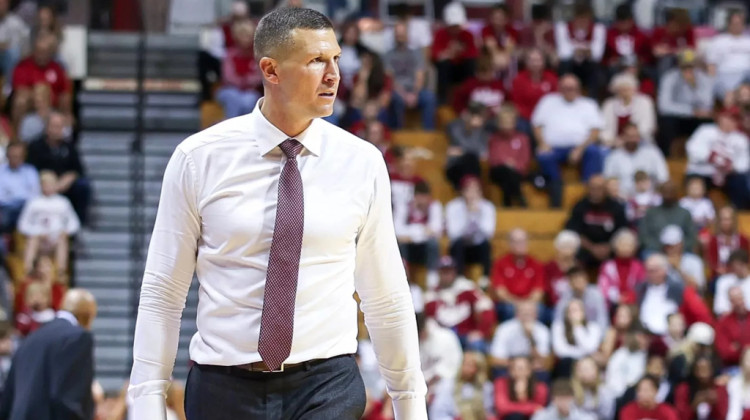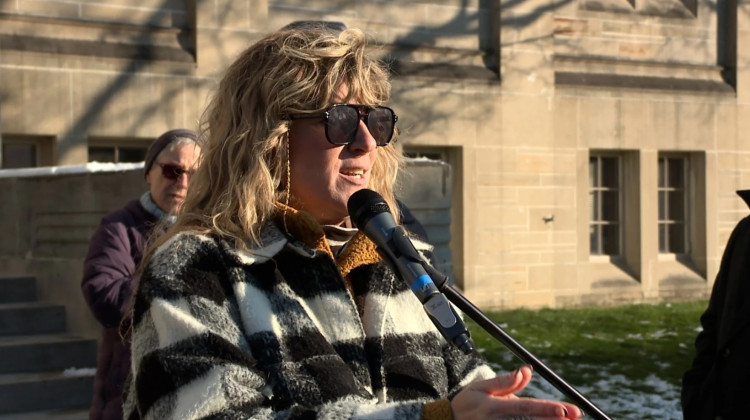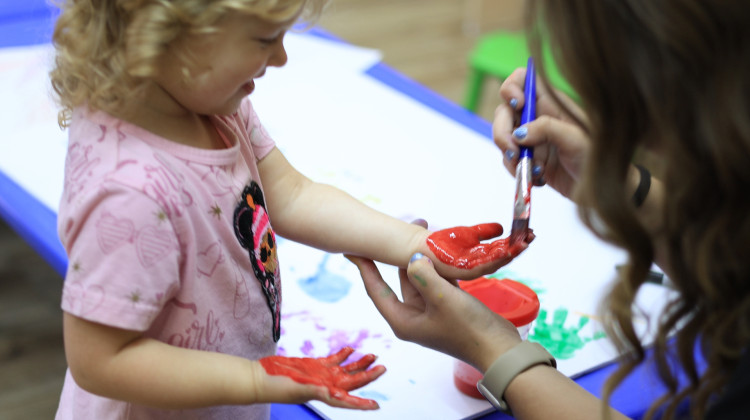
The Mind Trust CEO David Harris said the groups new charter school incubator takes better advantage of Indiana's charter school law, which gives schools flexibility in how they are set up and run.
Alan Petersime/Chalkbeat IndianaIndianapolis could eventually become the home to four charter schools that bear little resemblance to any school in the city — or, for that matter, across the country.
The Mind Trust, an education advocacy group, is starting a new program to award four grants totaling $1 million to four individuals or teams who can dream up a great school and help shepherd it into existence. The Mind Trust CEO David Harris said charter schools have been criticized fairly for doing too little to truly re-imagine how schools could work better, and he hopes to help change that.
“Most charter schools still look like school have looked for two centuries,” Harris said. “What we want to do here is take advantage of our experience innovating new schools and the city’s experience as a driver of innovation to seed really cutting-edge models of school design.”
What kind of innovation are they looking for? Harris said they don’t really know yet, and that’s the point.
“Part of the challenge in explaining this is we can’t tell you specifically what we’re looking for,” Harris said. “Because we want to invest in people who are thinking outside the box.”
But he did point out a few schools that have changed the roles of teachers and experimented with how students learn on their own. One example is Summit Public Schools in California and Washington, D.C. The schools expect students to play a major part in directing their own learning, and teacher mentors are assigned to students so they get additional individual support.
Intrinsic Schools in Chicago has experimented with a school’s actual space, dividing its building into movable “pods” that can be changed depending on whether students are working on computers, listening to a lecture or working in groups.
Harris also mentioned success at Generation Schools, out of New York City. However, an investigation by Chalkbeat New York explored whether the organization’s Brooklyn campus was truly addressing the needs of its students.
If a school model is virtually unheard of, one might wonder how educators and education leaders could be assured it will work. Harris said before a school would be opened or expanded, he could see some of the ideas possibly beginning in individual classrooms, as part of a before- or after-school program, or even during the summer.
The Mind Trust will host an April 5 symposium to try to attract interest to the program as well as offer a competition to participants who’d like to eventually submit school design ideas. The winner will receive $50,000 to develop a proposal for the program.
“We think this is something that is unique,” Harris said. “Not just to anything that has happened in our community, but is unique nationally, and will continue to allow us to burnish our reputation as a city that is pushing innovation in education.”
There is no deadline for the program, unlike the group’s existing “innovation school fellowships” that partner innovators with Indianapolis Public Schools. Harris said that when they see good ideas, they’ll invest. That could take months, or it could take years.
Harris said The Mind Trust has learned from past fellowship ideas that either faded or saw big leadership changes to make sure applicants have self-sustaining plans that don’t require extras such as city funding.
“The question is, how do we get those folks who we think can deliver on those things that are fundamentally changing education,” Harris said. “If we’re sitting here on the 26th of August next year, our hope is we’ve made an investment by then. But if we haven’t, we’re prepared to take the time we need to find the folks to get this right.”
Chalkbeat Indiana is a nonprofit news site covering educational change in public schools.
 DONATE
DONATE







 Support WFYI. We can't do it without you.
Support WFYI. We can't do it without you.